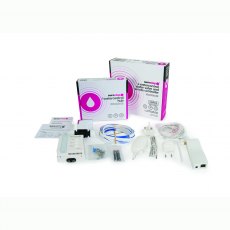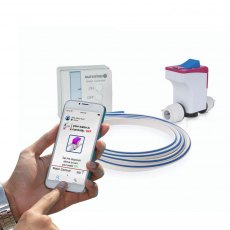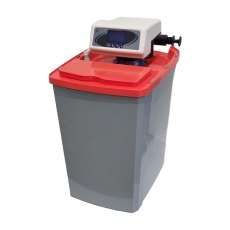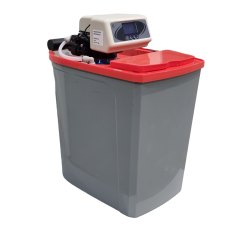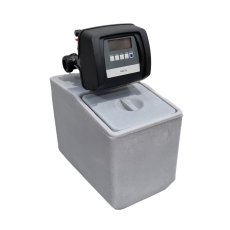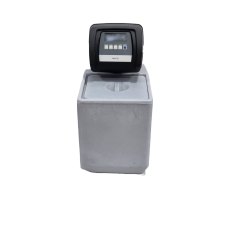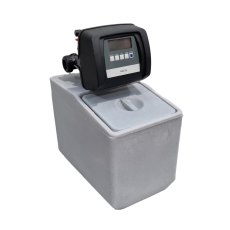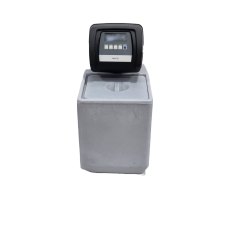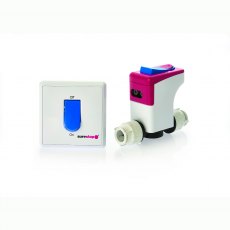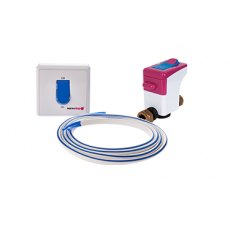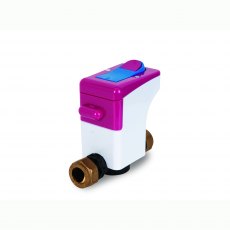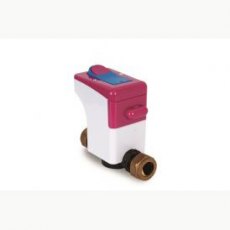Featured Products
(€184.50 inc VAT)
Water Softeners FAQs
How do I know if I need a water softener?
If the area you live in has hard water then, the chances are , you will benefit by installing a water softener. Some signs of hard water are staining on your sinks, toilets and bathtubs, limescale buildup on shower heads, kettles along with inside your washing machine, dishwasher and shower pumps. This can also lead to pipes and radiators clogging making your heating system work harder to push water through which in turn affects the efficiency of the boiler. Hard water makes soap and laundry detergent less effective and can make your skin and hair dry.
To see our range of water softeners click Water Softeners.
What is hard water?
Hard water is water that has a high mineral content while percolating through rock which has deposits of limestone, chalk or gypsum. The higher level the mineral content, the harder the water. Hard water is very common in Ireland.
Can I test for hard water?
Yes, you can now buy home water tests to see how hard your water is. Generally, the following table will tell you how hard your water is:
Classification
Soft
0 – 17.1 Mg/L or ppm / 0 – 1 Grains per Gallon (gpg)
Slightly hard
17.1 – 60 Mg/L or ppm/ 1 – 3.5 Grains per Gallon (gpg)
Moderately hard
61 – 120 Mg/L or ppm/ 3.5 – 7.0 Grains per Gallon (gpg)
Hard
121 – 180 Mg/L or ppm/ 7.0 – 10.5 Grains per Gallon (gpg)
Very hard
180+ Mg/L or ppm/ 10.5+ Grains per Gallon (gpg)
What are the benefits of installing a water softener?
By installing a water softener in your home you will see the following benefits:
- 100% limescale removed
- Washing machine works better with less detergent
- Hair and skin is softer
- Longer life on appliances such as kettles, dishwashers, washing machines and electric showers
- Helps saves on energy bills as water pipes are not clogged and hot water cylinders last longer. Also saves money on soaps and detergents as less are needed with soft water.
To see our range of water softeners please click Water Softeners
How long do water softeners last?
The average life expectancy is about 10 – 15 years depending on the system you purchase.
Is it OK to drink softened water?
Generally, yes, softened water is okay to drink by healthy people but does contain a small amount of sodium. The harder the water that was softened, the higher the sodium content. People who are on a low sodium diet and babies should not drink softened water. If installed correctly, there should be one tap that is from the mains directly and not run through the water softener.
What is a water softener?
Home water softeners, also called ion exchange units, are appliances that remove calcium, magnesium, and other minerals from drinking water. Resin beads inside the softener trap the calcium and magnesium and exchange them for sodium or potassium. Once the resin beads become full of calcium and magnesium, a highly concentrated salt solution removes the calcium and magnesium from the beads. After passing through the beads, the resulting chloride solution becomes a waste stream that goes down the drain and ultimately into the environment.
How does a water softener work?
Put simply, hard water enters the water softener through the main water pipes. The hard water flows into the water softener and into a mineral tank containing resin beads. The resin beads collect the minerals and substitute them with sodium ions that soften water. Captured minerals cling to the beads, leaving soft water to flow into the plumbing system. Salt is then used in a brine solution to clean the beads of the mineral and regenerate, flushing the minerals down the drain.
Which types of salt are sold for application in a water softener?
You can only use salt designed for water softeners. These come in crystals, blocks or pellets. The type of water softener will determine the type of salt that is to be used.
How often should one add salt to a softener?
Because newer water softener models are more efficient with salt use, typically you only will need to add salt every 6-8 weeks. It is a good idea to check the salt tank regularly to make sure that it is full.

 Login
Login
